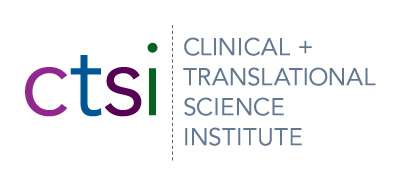Career Education and Enhancement for Health Care Research Diversity (CEED)
On July 1, our Career Education and Enhancement for Health Care Research Diversity (CEED) Program experienced a change in leadership, with Esa Davis, MD, MPH, FAAFP, Associate Professor of Medicine and Clinical and Translational Science, assuming the directorship of the program. She took over from Kaleab Abebe, PhD, and Natalia Morone, MD, MS (who left Pitt at the end of March), who had led the program for the past six years. Despite this change, however, the goals of CEED will stay the same: to help promote the diversity of perspectives in medicine and science, since, as Dr. Davis put it, "the more diverse perspectives we have, the more cutting-edge and innovative we can become."
Under Drs. Abebe and Morone's watch, CEED grew and experienced several significant innovations. They established a partnership with two divisions in the Department of Pediatrics, Adolescent Medicine and Emergency Medicine, which allowed the directors to talk to new recruits about CEED. This proved to be a huge pipeline for incoming Scholars, and allowed those divisions to see the benefit of having CEED as part of their educational programs.
Drs. Abebe and Morone also broadened the program’s reach, allowing earlier stage fellows—even 1st-years—to participate. This helped to ensure Scholars were not introduced to concepts like negotiation and writing effective biosketches too late in the game. CEED’s efforts to recruit and retain members of underrepresented groups was recognized in 2014 with the Chancellor’s Affirmative Action Award.
Dr. Davis admires how Drs. Abebe and Dr. Morone were able to help CEED grow, ensure the topics of instruction remained very relevant to Scholars' needs, and provide Scholars with a safe space in which they could get the intense career development they needed. "I think it’s so important to retain the intimacy of the group and foster the sense of community," she said, "which allows Scholars to network and have the opportunity to interact with their colleagues and with mentors and faculty members who can support them."
Dr. Davis hopes that CEED can continue to prepare Scholars to be strong candidates for funding—both for internal and external K awards, as well as for the Harold Amos Medical Faculty Development Program (through the Robert Wood Johnson Foundation). She also wants to implement a curricular component that will help participants develop skills so that they themselves can become successful mentors.
More than anything, she wants to increase the visibility of the program across campus, so that even more divisions can see the importance of CEED and what it can offer their trainees. She hopes to increase attendance at the spring poster session where CEED Scholars present their work, so that more people can see the talent these Scholars have and how important their contributions are both to medicine and science more broadly but also to their particular departments.
For Dr. Abebe's part, he hopes CEED will continue to be given the resources it needs, both for its own self-sustainability and so that Scholars can have access to things like biostatistical study design support for their projects. Dr. Davis is excited to start in her new role and to work with the incoming CEED cohort which has Scholars from a number of different departments and divisions, including Obstetrics, Gynecology, and Reproductive Services; Epidemiology; Bioengineering; Biomedical Informatics; and the Department of Health Promotion & Development in the School of Nursing—the latter two being represented for the first time.
The Institute for Clinical Research Education serves as the Research Education and
Career Development
Core of the Clinical and Translational Science Institute (CTSI).

This Web site is maintained by the Center for Research on Health Care (CRHC) Data Center.
Contact the webmaster at dcweb@pitt.edu.